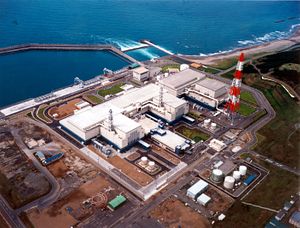Following Japanese Prime Minister Shinzo Abe’s recent electoral victory, speculation has revolved around the likelihood of his revisions to Article 9 of the constitution, a move which, if successful, could see the nation abandon its traditional pacifism for strategic normality. In fact, Abe’s election campaign was based largely on his tough stance against North Korea’s increasingly provocative behavior, itself a driving factor behind the push for constitutional reform. However, potential changes to Tokyo’s security posture and a shifting strategic environment may have equally profound implications for Japan’s nuclear power program. While domestic debates over safety and feasibility drag on more than six years after Fukushima, nuclear power is gaining increasing significance as not only a strategic asset but, arguably, a strategic vulnerability.
In 2017, Japan has faced a particularly tense strategic climate, evidenced by increasingly frequent activities in and around Japanese airspace by Chinese and Russian aircraft, and the dramatic escalation of the North Korean crisis. In particular, the rapid progress of North Korea’s nuclear program and accompanying doubts over the reliability of the U.S. “nuclear umbrella” have led regional powers, including Japan, to consider pursuing a nuclear deterrent of their own. Strategic thinkers have long regarded Tokyo’s nuclear power program as a latent deterrent against regional adversaries. Since the mid-1990s, government figures have either admitted or claimed that the Japanese constitution does not prohibit the possession of nuclear weapons, and that Tokyo possesses the capacity to build them.
Constitutional matters aside, several events have lent credence to suspicions that Tokyo is already firming up this potentiality. The codification of the safety of the nuclear power program within the Atomic Energy Basic Law as indispensable to national security in 2012, the “missing” 640 kilograms of plutonium in 2014, and the pending resumption of fuel reprocessing operations at the Rokkasho enrichment plant under government supervision next year — despite a dearth of operational power plants — arguably indicate that Tokyo continues to regard nuclear power, at least in part, as a security asset. Some analysts have even contended that Japan’s nuclear power program lost its economic and energy rationale long ago. Even so, the technological, social, political, and financial impediments to acquiring a nuclear weapon in Japan mean that the speedy development of a deterrent is far from assured. Assertions by politicians that Japan is not constitutionally prohibited from possessing nuclear weapons have often inspired fierce public and political backlash, given Japanese society’s “allergy” to nuclear weapons. Furthermore, the military infrastructure required for supporting a nuclear deterrent would demand considerable financial and time investment, and Tokyo would likely be unable to call upon Washington’s assistance with this particular project. Essentially, while Japan could likely produce a nuclear weapon in a matter of months, actually deploying it for combat readiness would take much longer.
By contrast, a credible argument that Japan’s persistence with nuclear power actually constitutes a strategic vulnerability has recently surfaced. In September, former Prime Minister Junichiro Koizumi — who has vocally campaigned against nuclear power since 2013 — claimed that the possession of nuclear reactors was “tantamount to possessing atomic bombs directed at the people of Japan,” in terms of their vulnerability to both natural disasters and attacks by hostile forces. Others have criticized the contradiction between Tokyo’s escalating North Korean threat rhetoric and a failure to remedy the acute vulnerability of further nuclear catastrophes. The Fukushima disaster has already demonstrated the far-reaching and long-lasting impacts of nuclear fallout on health, environmental, economic, and energy security. While the safety of Japanese reactor technologies remain vehemently disputed, their strategic vulnerability is shaping up as another legitimate anxiety given the unpredictability of North Korean missile launches.
In fact, in 2013 North Korean news media actually identified Japanese reactors as prime targets for potential strikes: “There are many nuclear power-related facilities in Japan. It will be unavoidable for the country to experience a calamity of the scale that will defy comparison with the nuclear catastrophe it suffered in the 1940s.” To illustrate the growing threat, this year alone North Korea has conducted multiple missile test flights over Hokkaido while threatening to “sink” the archipelagic nation. Japan’s high population density would have the effect of amplifying the damage of an attack on even a minor metropolitan center, let alone a nuclear facility. That threats dismissed as bombastic only four years ago might now be considered entirely credible reflects the rapid advancements in Pyongyang’s military programs. Indeed, despite the supposed gulf in technological superiority between North Korea and its foes, uncertainties about the reliability of ballistic missile defense systems call into question Japanese or American capacity to shoot down incoming rockets. Even the deployment of THAAD or Aegis Ashore missile defense systems on Japanese soil would not necessarily secure nuclear reactors against potential strikes.
Tokyo could plausibly attempt to mitigate this threat by redirecting international pressure and dialogue toward North Korea’s cooperation on human rights concerns, including the abduction issue, and away from military escalations. However, security threat posed by North Korea has given Abe’s pursuit of constitutional revision greater momentum than ever before, and maintaining that discourse will remain imperative to his efforts until reforms either pass the Diet or disappear into obscurity. In turn, Abe’s reelection has prompted Pyongyang to reiterate justifications of its own behavior as defense against Japanese preparations for “a reinvasion of the Korean Peninsula.” This process of framing and counter-framing by Tokyo and Pyongyang is, rather cynically, mutually beneficial to the narratives driving militarization in each country respectively. One shouldn’t expect either side to abate at this critical juncture.
All things considered, the growing threat from North Korea is unlikely to prompt Japan to rethink the strategic value of nuclear power. Nonetheless, policymakers would be well-advised to consider the paradox of Japan’s nuclear program as a deterrent and a vulnerability in a fresh light.
Tom Corben is an International Relations and Asian Studies (Hons) graduate from the University of New South Wales, Australia.

































